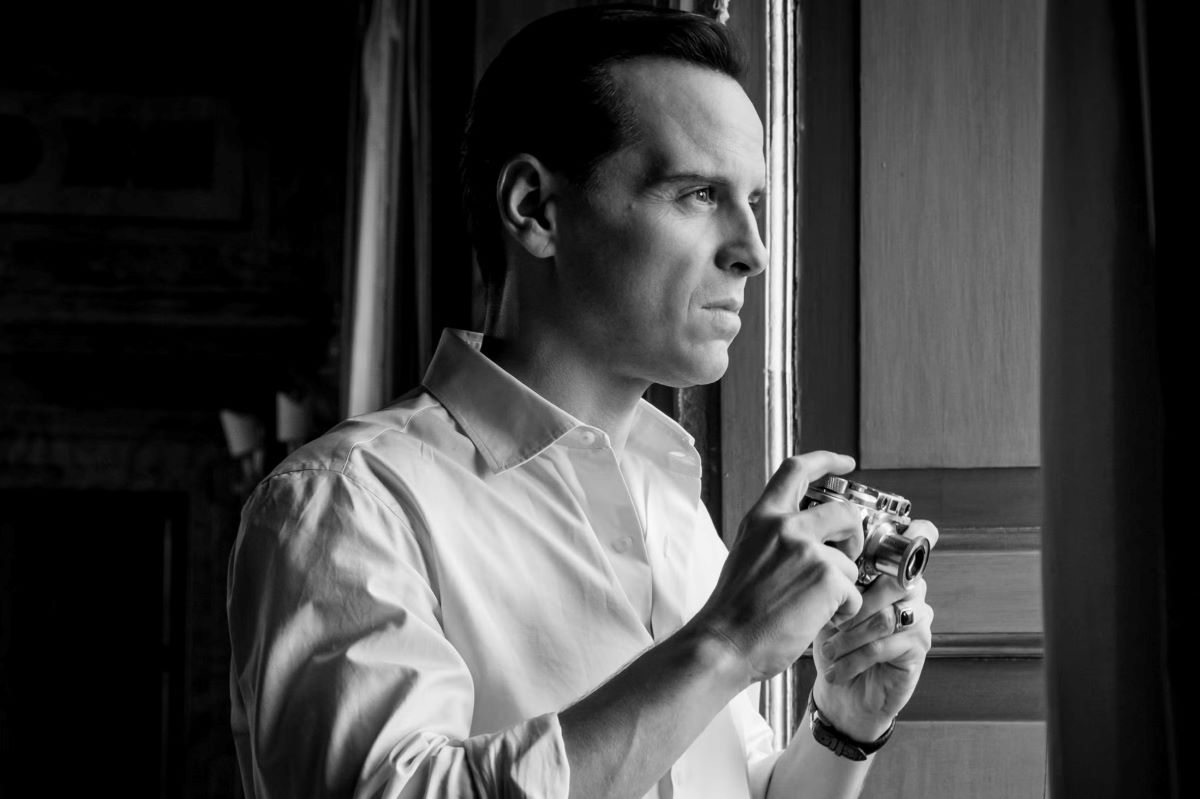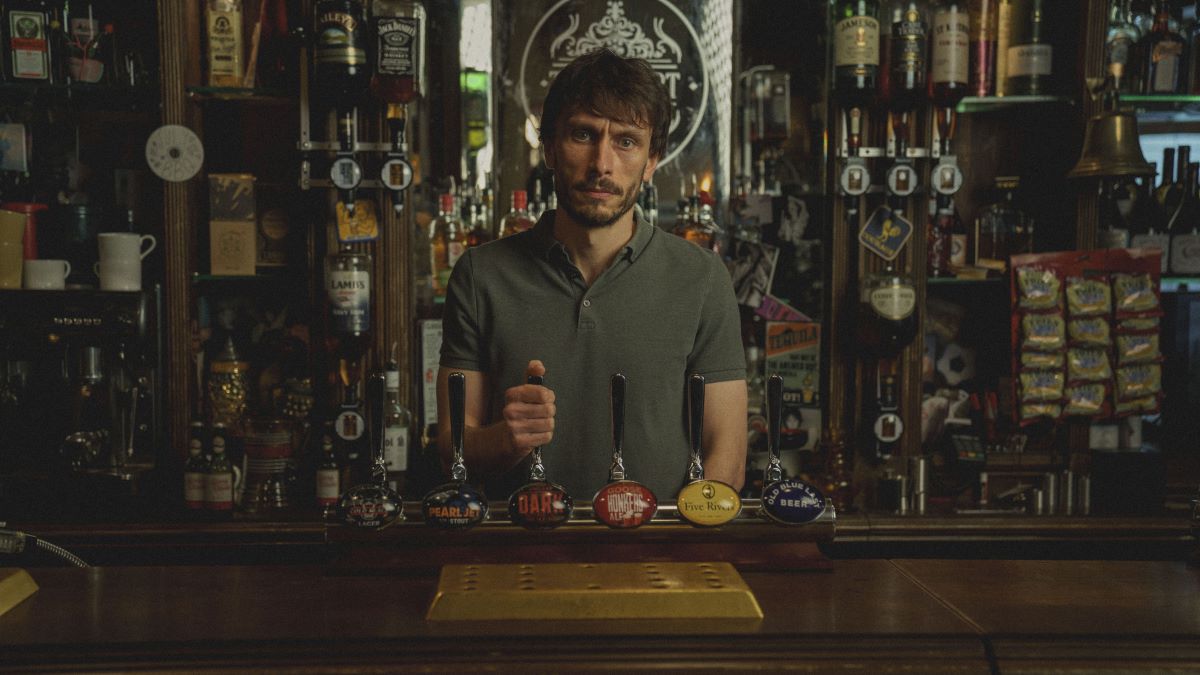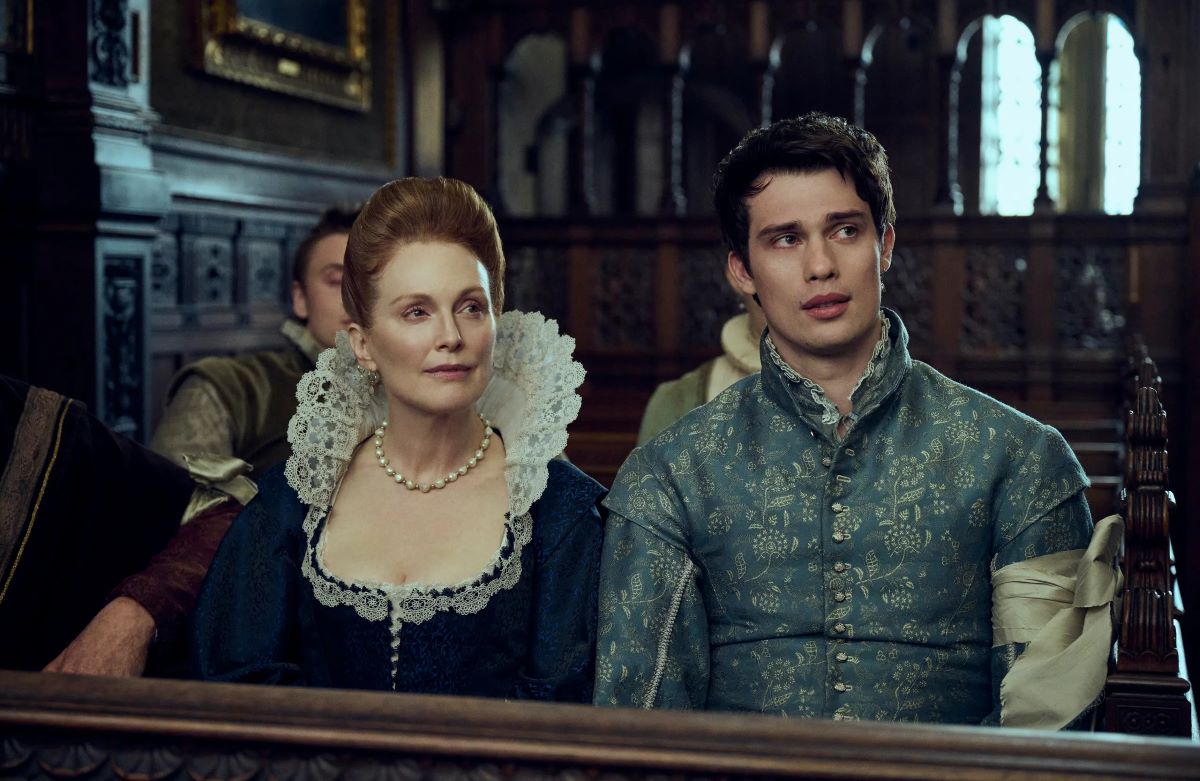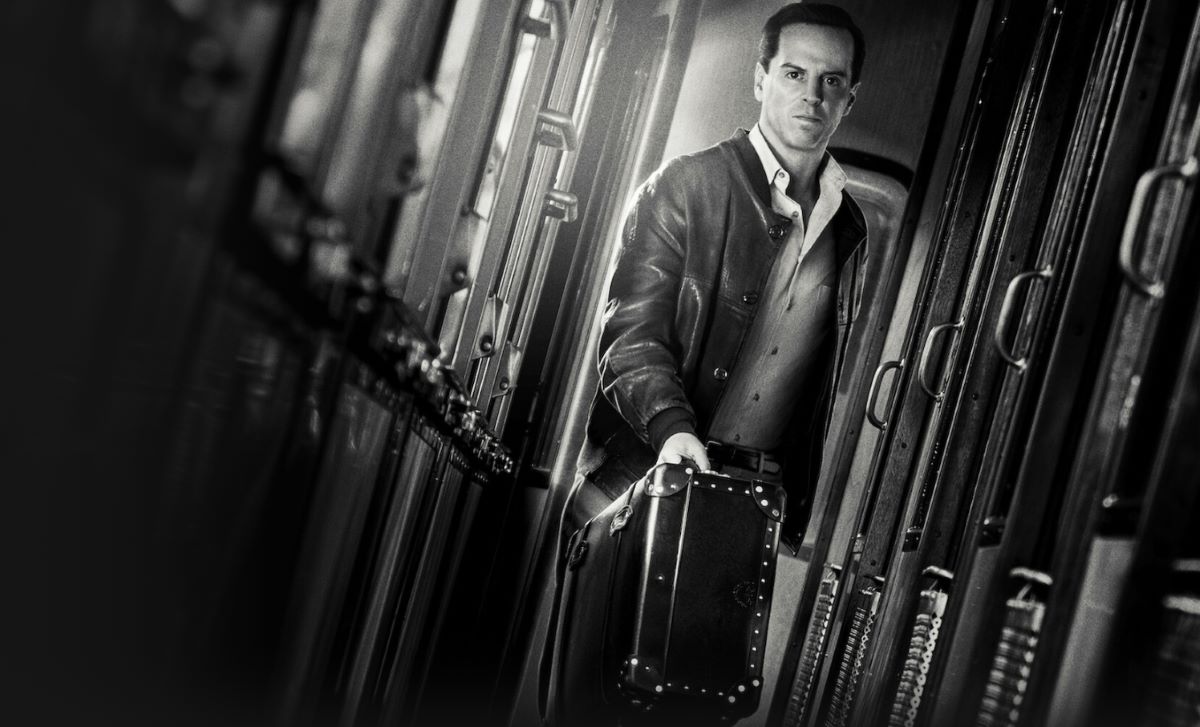A formidable Andrew Scott brings to life the iconic character created by Patricia Highsmith: Time, Nature, and Evil according to Steven Zaillian, on Netflix
Thomas Ripley, a petty swindler, is tracked down by a private detective on behalf of the wealthy Herbert Greenleaf, who wants to use him to bring back his idle son, Richard “Dickie” Greenleaf, who has been living in Atrani (Salerno), Italy, with his girlfriend Marge for some time. In reality, Tom is not the close friend of Herbert’s son as Herbert believes: he met him only once at a party and barely knows him. However, the opportunity is unique: to fly to Italy, become Dickie’s best friend, take his place, and take over his belongings.
Thomas Ripley, the unsettling character created by Patricia Highsmith in 1955 and the protagonist of five novels by the American writer, can rightfully be considered one of the last literary archetypes of the modern era. From the first big-screen adaptation, the splendid Plein Soleil by René Clement starring Alain Delon, through films by Minghella and Cavani, adaptations of his criminal deeds on both the small and big screen are now numerous. Viewers now approach these adaptations in a philological manner, as one might go to the theater to see Hamlet: not just for the story, but for how it is staged. Central to the discussion, therefore, becomes the viewpoint of the adapter, his fidelity to Highsmith’s original text, and the liberties he has taken. This premise is necessary to understand a fundamental point: you will not find unanimous consensus for this monumental endeavor by director and screenwriter Steven Zaillian (Oscar winner for Schindler’s List in 1993: hardly a newcomer).
Minghella’s Matt Damon is still too fresh in the hearts of the nearly boomers, and even the diabolical John Malkovich by Liliana Cavani has his admirers. Likely, the black and white and the extremely calm pace will disorient many viewers who, after exhausting, hot days of work, tend to doze off on the couch after vainly hoping a thriller would keep them awake. Yet, detractors should not be offended; criticizing this Netflix series for its slowness means having understood very little of the entire operation (which does not necessarily have to be liked, that’s another matter).

Time, in its various facets, is the true protagonist of Zaillian’s Ripley. The year 1960, marked by a caption, seals an era that seems mythical—a version of Italy unknown to people in 2024, without traffic or cars, a primordial nature barely touched by sparse human presence (the outdoor cinematography by Robert Elswit is formidable). An Eden whose tranquility is disrupted by a dark drop of evil, that of Tom Ripley, who is not a son of this world and does not belong to it. Tom’s sole rooting in another world seems to deform the environment, turning it into an expressionist and livid set, or a sick fantasy of Escher. His struggle to take Dickie Greenleaf’s place is also an attempt to merge into a world that rejects his presence from the very first moment—consider the suspicious glances of the servants in Atrani, the bank men, the receptionists. It is even Nature itself that rebels against the infected germ of evil embodied by Tom, when he falls off a boat in Sanremo right after committing his crime, risking his life in turn.
The hieratic slowness of the narrative is even more eloquent in revealing Zaillian’s intentions: Time, in addition to being the protagonist, is Tom Ripley’s accomplice. Accustomed since CSI to ultra-sophisticated investigations supported by the most refined anti-crime technology, the incredible deception of Tom Ripley would have had a very hard time nowadays. But the 1960 of Steven Zaillian allows him to get away with it: the slowness belongs to a daily life different from ours, made of phones, letters, telegrams, very long train journeys to summon witnesses for questioning, investigations that are necessarily very slow, the impossibility of immediately refuting statements or versions of facts. Time Is On My Side, Tom Ripley might sing to the tune of the Rolling Stones, were he not a fan of Mina and Il cielo in una stanza.
Finally, the time of interminable seconds, of nothing happening, is what helps us closely see and desecrate any possible fascination with evil. Ripley will receive no ellipsis to hide a body killed in cold blood in his living room; he will have to wait hours and hours in front of it, waiting for night, to head out at night on the Appia Antica in Rome, and we with him. Taking on this criminal via Crucis, where a single mistake can indefinitely prolong the process, is the delicious torment through which the viewer’s emotional involvement passes, called, despite themselves, to share the frustration and discomfort.
Andrew Scott is formidable, and the latent homosexuality of his character mirrors that present in Highsmith’s novel. Johnny Flynn and Dakota Fanning also perform admirably, and like Scott, they speak excellent Italian, which was not a given. The Italian cast, directed by a foreign filmmaker, is always a bit over the top: Margherita Buy, perhaps, is not quite in her element, or maybe she has been playing the same role for years and this time something different was needed. Always emerging with credit is the inspector played by Maurizio Lombardi, who is truly convincing. All this is supported by a top-notch technical department, from the set designs and costumes to the music by Jeff Russo.
Praise goes to Steven Zaillian, who in an era of bite-sized, disposable series, takes the necessary time for a broad reflection, while at the same time offering us entertainment of cinematic quality. For those who might not appreciate it: tastes vary. And on the couch at home, one can always sleep away from prying eyes.
Gianluigi Ceccarelli
Cinematografo, April 19, 2024






1 thought on “Ripley: A Haunting Descent into Evil on Netflix | Review”
With Ratched proving such an engrossing series looking at the descent to evil with a female protagonist its great to see something similar in the male protagonist. Love how stylistically different this is from ordinary television too!